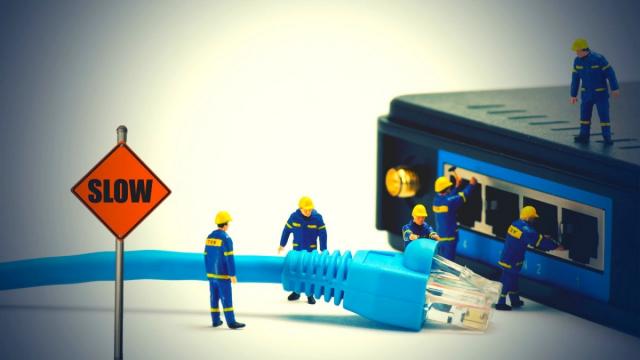
Netflix said on Monday it will join Wednesday's "Internet Slowdown" event to raise awareness about net neutrality.
On Sept. 10, a number of top startups – from Kickstarter and Etsy to Reddit and WordPress – will add widgets to their sites that display the dreaded "loading" wheel one might see when trying to watch a video over a slow connection.
Unlike the 2012 Internet blackout day in protest of SOPA and PIPA, the "Slowdown" event won't actually slow service on these companies' websites. Instead, it will serve as "a call to action for users to push comments to the FCC, Congress, and the White House."
Netflix, a vocal backer of net neutrality, is the latest to pledge its support for the event, sponsored by consumer groups Free Press, Fight for the Future, Demand Progress, and Engine.
Organizers are calling on websites to add snippets of code and run it all day on Sept. 10 and also change social media avatars to the "spinning wheel of death." App developers can also send push notifications.
The FCC is accepting public comment on what it should do to regulate net neutrality until Sept. 15. This is the second round of comments, and the first attracted more than 1.1 million comments this summer.
The FCC came under fire this spring when Chairman Tom Wheeler circulated a proposal that would allow for paid prioritization on the Web under special circumstances. Given that that's the exact opposite of what net neutrality sets out to accomplish, backers were immediately up in arms.
Wheeler repeatedly insisted that the FCC would not allow for Internet fast lanes and would closely monitor any attempts at paid prioritization. But the backlash ultimately prompted the FCC to remove any sort of set rules from its proposal and toinstead ask the public what they think about paid prioritization and how the FCC should handle it.
The problem, of course, is that U.S. courts have struck down the FCC's net neutrality rules – twice. ISPs like Verizon and Comcast say they adhere to the tenets of net neutrality but reject the FCC's authority to regulate the matter.
The courts have thus far agreed with the ISPs, requiring the FCC to go back to the drawing board. Wheeler's initial proposal, therefore, was a way to get net neutrality rules on the books without prompting a third lawsuit from ISPs, but thatdid not go as planned.
The easiest solution would be for Congress to pass a bill that legislates net neutrality. But the GOP – which currently controls the House – wants no part of that, so getting a bill through both chambers seems unlikely.
3 WAYS TO SHOW YOUR SUPPORT
- Log in to post comments











